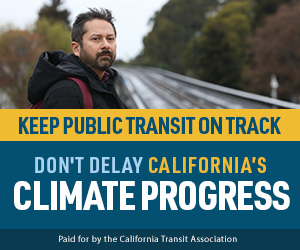Preserve Public Transit Funding, Unlock Frozen Funds
California's transit agencies are facing a critical moment as Governor Newsom and the Legislature consider whether to preserve $5.1 billion in existing state commitments for bus and rail projects & operations statewide.
Without the preservation of this funding to maintain and expand core services and keep major sustainable bus and rail capital projects on track, California's most vulnerable residents and communities relying on transit for jobs, education, and other everyday needs are at risk. What’s more, without the preservation of this funding, we stand to lose out on billions of dollars in federal investment in transit and rail projects necessary to meet California’s climate and mobility goals.
In the face of dire fiscal outlook, Governor Newsom is proposing a combination of funding delays, shifts, and cuts to close the projected deficit and maintain the state’s commitment to bus and rail projects & operations statewide. The Joint Legislative Budget Agreement announced by Senate President pro Tempore Mike McGuire and Assembly Speaker Robert Rivas similarly maintains this funding for public transit. As budget discussions continue, it is critical that the Legislature and the Governor enact a final budget that maintains this funding to avoid project delays, service cuts, and workforce layoffs.
Additionally, the Governor and Legislature must immediately release $2.4 billion in transit funding for the FY 2023-24, a component of the $5.1 billion total investment, which was supposed to flow to agencies no later than April 30.
 "Until it’s distributed, the spending freeze imposes significant uncertainty around billions of dollars in one-time federal funding, project delivery timelines, and operations planning."
"Until it’s distributed, the spending freeze imposes significant uncertainty around billions of dollars in one-time federal funding, project delivery timelines, and operations planning."
Read Legislative Sign-On Letter